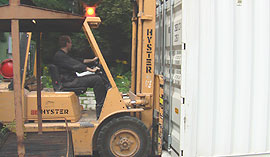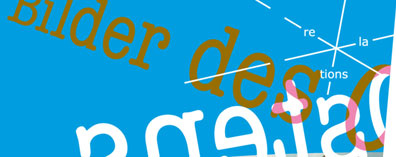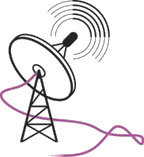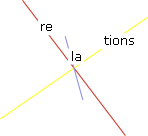|
|



ConceptKatrin Klingan, Ines Kappert, Peter WellachCoordinationSamo Darian, Patricia Maurer, Franziska Sauerbrey, Sandra Schwarzer, Katrin WendelProject assistanceFranziska Franze, Vera Opitz, Birte SchrammEvent productionvisionauten, Finn Jensen, Alf ThumTechnical directorKarsten FischerDesign and production of the container, media wall, loungeid3d-berlin themengestaltungMedia wall artistsPavel Brăila, Dren Maliqi, Tomislav Medak, Artur Žmijewski, Kalin Serapionov, pro.ba, Igor ZupeVideo portraitsAuthor: Sibylle DahrendorfCamera: Ingo Brunner Sound: Rico Vogt, Bianka Schulz Editing: Wolfgang Lehmann, Magna ManaPostproduction DVD-ROM "Images of the East"in cooperation with the Federal Agency for Civic Education (to order, visit: www.bpb.de)FormatsMedia wall "Images of the East", readings, discussions, concerts, performances, exhibition, film series, audio stations, video portraitsParticipating institutions in HanoverschauspielhannoverKommunales Kino (KoKi) Kunstverein Hannover Participating institutions in HamburgDeutsches Schauspielhaus in HamburgAbaton Kino Sarajevo Film Festival Participating institutions in FrankfurtschauspielfrankfurtDeutsches Filminstitut - DIF / Deutsches Filmmuseum goEast Filmfestival Wiesbaden Sarajevo Film Festival
ProtagonistsKonstantin Akinsha, Elmar Altvater, Sokol Beqiri, Luchezar Boyadjiev, Pavel Brăila, Boris Buden, Ivaylo Ditchev, Nicoleta Esinencu, Carolin Fetscher, Javor Gardev, Mathias Greffrath, Irm Hermann, Caroline Hornstein-Tomić, Migjen Kelmendi, Gerald Knaus, Stephan Lohr, Lucia Marci, Nuevos Ricos, Oskar Negt, Planeta Moldova, Tilman Rammstedt, Marijana Senjak, Alexandru Vakulovski, Jasmila Žbanić, Zdob şi Zdub |
The Focus The "relations" docking tour focuses on seven cities where "relations" has engaged in intensive ex-change with cultural actors over the past four years: Chişinău, Sofia, Pristina, Sarajevo, Warsaw, Zagreb, and Ljubljana. "relations" shows what only very few have managed to imagine, albeit 17 years have gone by since the fall of the Berlin Wall, both in the everyday and the intellectual and artistic life in cities of eastern Europe as well. These cities are the places our western thinking considers the "East" and, hence, intuitively as distant and strange. But since 1989, setting a breathtaking tempo, these urban centers have been catching up to western European standards. Rents are going up, public spaces are increasingly privatized, the gap between rich and poor continues to widen. At the same time, niches of freedom have opened up, and these are not only restricted to careers in business: artistic production is blossoming and critical voices are making themselves heard. Contradictions are part and parcel of development everywhere. But, as is often claimed, are these processes in eastern Europe merely emulations which the "West" has already gone through? Are the so-called transitional societies really the stragglers and poor imitators, dragging behind the West? And furthermore, what does the "West" mean – when "you’re the West"? We, on the western side of the European "divide," are still inclined to classify the above mentioned cities simply and trivially as the "East"– despite current and historical differences alike. And what’s more, there are circumstances where Hanover is closer to Sofia than Bucharest or Hamburg has more in common with Budapest than Berlin. So let us take a differentiated look at things, one that takes leave of notions of the East and Communism and, hence, closes the file on those of the West and Capitalism as well. Let us fashion a position strong and flexible enough to deal with common features, differences, and parallel worlds, without rashly searching for orientation in the safety of clichés.
The Tour |
